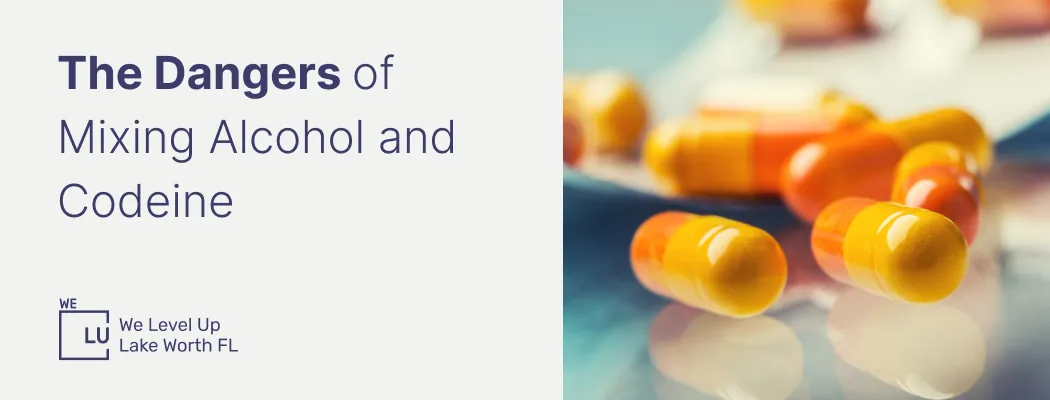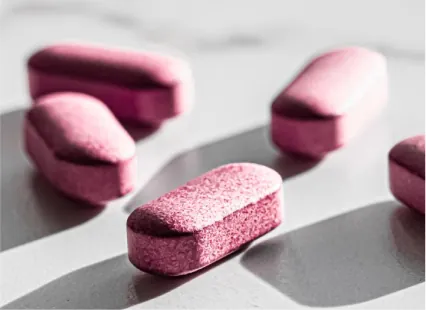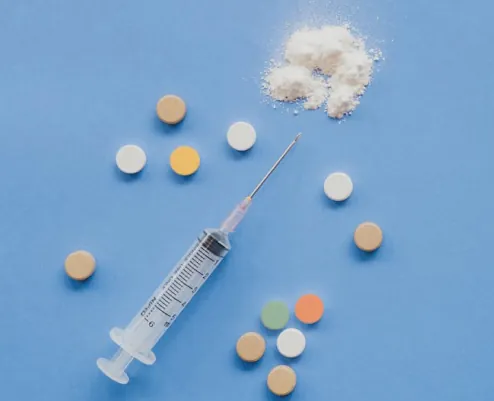The increasing trend of mixing alcohol and codeine is more than just a fad we shouldn’t take into serious consideration; it’s a concerning combination that demands our utmost attention.
As this “cocktail” gains popularity, it’s crucial to shed light on its serious risks to the well-being of people who consume it. We will try to explain the real-deal dangers of mixing alcohol and codeine – the kind of stuff that goes beyond a simple buzz. Also, we’ll break down the details of just how this mixture messes with our bodies and minds, from sedation and breathing issues to liver damage and the dark side of addiction. Needless to say, it’s time to understand the real risks and make informed choices.
Skip to:
Understanding the Effects of Codeine and Alcohol
First, let’s explore the nature of the prescription painkiller known as codeine: it relieves mild to moderate pain and coughing when used following a doctor’s guidance. However, misuse, including unauthorized use and combining the drug with alcohol for an intensified high, carries some serious risks to the well-being of people who consume it. Additionally, the euphoric effects of the medicament may lead to the development of codeine drug addiction.

What Happens if You Mix Codeine and Alcohol?
Can you mix codeine and alcohol? Sure, you can, but the question is, should you? What happens if you do that?
Combining codeine with alcohol heightens intoxication and escalates the risk of a potentially fatal overdose. Despite these dangers, some people are drawn to codeine’s allure; they persist in mixing it with ethanol despite the obvious (not to mention serious) risks. Prioritizing informed and safe usage is very important to avoid these dangerous consequences. Not to mention, using alcohol alone comes with several serious health risks.
Consequences of Alcohol Consumption
According to research done by WHO (World Health Organization) – excessive alcohol use plays a crucial role in over 200 disease and injury conditions, contributing to about 3 million deaths annually worldwide (around 5.3% of all deaths). Moreover, it’s not that alcohol consumption has far-reaching effects on individuals’ well-being solely – the lives of those in their circles are also affected. But first, let’s consider the physical consequences of alcohol consumption. We can divide these into short-term and long-term health consequences of alcohol use and abuse.
The short-term (nonetheless – harmful) health consequences of alcohol consumption are:
- Injuries (motor vehicle crashes, falls, drownings, and burns).
- Alcohol poisoning (as a result of elevated blood alcohol levels; a critical medical emergency).
- Miscarriage, stillbirth, or fetal alcohol spectrum disorders (in pregnant women).
- Risky sexual behavior (boosts the likelihood of unwanted pregnancies and STDs).
- Various forms of violence (homicide, suicide, sexual assault, or intimate partner violence).

When it comes to the long-term effects of alcohol consumption, these are some of the most common ones:
- High blood pressure, heart disease, or stroke (alcohol takes a toll on the cardiovascular system).
- Various types of cancer (throat, mouth, breast, liver, colon, etc.).
- Issues with liver and digestion (there are many negative effects of alcohol on your liver and digestive system as a whole).
- Weakened immune system (increased chances of getting sick).
- Alcohol use disorder and various mental health issues (depression, anxiety).
Let’s not forget to mention that excessive alcohol use can affect your aging. You’re wondering just how does alcohol age you? Well, for instance, alcohol plays a major role in causing the premature development of fine lines and wrinkles – one of the most telling signs of a person’s age. Lastly, regarding social implications, excessive alcohol consumption has the potential to harm relationships, jeopardize job stability, and even lead to unemployment.
The Risks of Mixing Codeine with Alcohol
If you’re interested in finding out exactly what happens if you mix codeine and alcohol, the short answer is – nothing good. As we already stated, the mixture of alcohol and codeine presents a pretty big risk, as it heightens the effects of both and increases the chances of overdose and/or long-term health damage. The interaction between the two substances prompts the rapid release of narcotic pain relief (in codeine), leading to elevated blood levels and intoxication. Additionally, the combo might also greatly impair judgment, boosting the risks associated with activities like driving.
Once again, we can separate the threats of mixing codeine and alcohol into two categories: short-term and long-term risks.
Short-Term Health Risks of Mixing Alcohol and Codeine
Mixing alcohol and codeine can significantly increase the risk of dangerous side effects, such as respiratory depression (hypoventilation – breathing too slowly or shallowly, preventing proper gas exchange in the lungs), which can be fatal. Additionally, this combination can lead to increased drowsiness and dizziness, impairing cognitive and motor functions and increasing the risk of accidents.
Extreme Sedation
Extreme sedation occurs once the central nervous system is overly depressed. It can lead to increased drowsiness and fatigue. In this state, consumers deal with overwhelming tiredness, compromised alertness, and challenges in remaining mindful and awake.
Weakened Motor Skills
People who mix codeine and alcohol can also suffer from enhanced dizziness and unsteadiness. This will, of course, pose a greater risk of falls or related incidents. Also, tasks that require coordination (driving or operating heavy machinery, for instance) will become more hazardous.
Cognitive and Memory Issues
The combo of these two substances will also have a great effect on the cognitive skills of users: they’ll have some difficulty concentrating and maintaining clarity and focus, and their ability to make decisions will be greatly impaired.
Also, both alcohol and codeine will contribute to substantial memory deficits when combined. People who mix the two will have some problems recalling events that happened during the period of intoxication.
Gastrointestinal Problems
Blending alcohol and codeine will irritate the gastrointestinal system of the consumers. Many of them have emphasized this side effect (nausea or vomiting).

Long-Term Health Risks of Mixing Alcohol and Codeine
Mixing codeine and alcohol over a longer period of time can have serious health consequences. This includes liver damage, gastrointestinal issues, and addiction. Also, prolonged abuse of these two substances combined will lead to developing tolerance, requiring higher doses and increasing the risk of a fatal overdose.
Risk of Overdose
That’s right, the most severe risk associated with the prolonged misuse of codeine and alcohol is the potential for a fatal overdose. Both substances (especially when combined) depress the CNS (central nervous system), slowing down vital bodily functions such as breathing or heart rate. An overdose of alcohol and codeine might result in respiratory failure, coma, or even – death.
Long-Term Liver and Kidney Damage
Extended use of codeine and alcohol combo poses a threat to various organs in the human body. Prolonged alcohol consumption is linked to liver and kidney damage, and if the codeine product the individual is using contains acetaminophen (or Tylenol), the risk of liver damage is enhanced.
Depression/Anxiety
Mixing codeine and alcohol can worsen anxiety over time, as both substances can individually trigger feelings of unease. For instance, numerous studies have shown a link between alcohol and anxiety attacks. This can eventually lead to the development of chronic anxiety and greatly impact overall mental well-being. Furthermore, after the substances wear off, users may experience depression due to disruptions in brain chemicals responsible for mood regulation. Continued use may worsen existing depression or lead to its development.

Alcohol Withdrawal Fever
Lastly, where there’s alcohol involved (with or without codeine and other substances), there’s always the risk of alcohol withdrawal fever. When someone stops drinking heavily after a solid period of non-sobriety, they might experience alcohol withdrawal. Unlike many other substances, alcohol withdrawal can be life-threatening. Symptoms vary from mild to severe, but with proper treatment, it’s possible to navigate withdrawal safely.
However – it’s best that you don’t try quitting on your own. Seeking expert help is crucial for a safe recovery because quitting alcohol without professional support can be quite dangerous.
The Path to Addiction
Using both alcohol and codeine can accelerate addiction development due to their combined impact on the brain’s reward system. The simultaneous use of the two substances creates a strong reinforcing effect, increasing the desire to consume them together again and again. This synergy can lead to higher tolerance and dependence over a period, which only raises the risk of addiction.
Recognizing Codeine and Alcohol Addiction
Of course, there are warning signs of addiction that you should look out for, and recognizing them is crucial for intervention. Symptoms such as taking substances without a prescription, doctor shopping (seeing multiple treatment providers to obtain more prescriptions), stealing, or illegal purchases are common indicators of addiction to codeine.
Additionally, further withdrawal from responsibilities, declining performance, excessive focus on the substance(s), and continued use, regardless of the consequences, are red flags for both. Watch out for changes in behavior, secrecy, intensive mood swings, and unusual actions, as these can signify an addiction to either alcohol or codeine.
Are you or your loved one experiencing memory loss, justifying the use of both substances to cope with stress, or withdrawing from social circles you used to be a part of? In that case, these could be warning signs indicating the need for treatment.

What To Do If You’ve Accidentally Mixed a Small Amount of Codeine and Alcohol?
You might find yourself in a situation where codeine and alcohol have been mixed, whether intentionally or unintentionally (yes, it can happen). If such a scenario occurs, keeping a cold head and taking immediate steps to ensure your safety and well-being is essential.
If you’ve only taken small amounts of alcohol and codeine, there’s generally no need for immediate concern, worrying thoughts, or panic. For instance, if you’ve taken a codeine-based cough medication earlier in the day and later had an accidental glass of beer, you’ll most probably be fine. However, as one can never be too careful, you should check yourself over the next few hours for any strange, out-of-the-ordinary signs and symptoms. Unless you notice symptoms of an overdose, such as extreme drowsiness or respiratory issues, the risk of serious harm is pretty low.
Lastly, while the risk of severe injuries is minimal, consuming these substances together, regardless of the amount, is not advisable by any means.
What to Do if You’ve Combined a Large Amount of Codeine and Alcohol?
Now, if you’ve consumed a substantial amount of codeine and alcohol, it’s of utmost importance that you immediately seek medical attention. Using solid amounts of these substances combined will lead to severe health risks we listed earlier in the article: respiratory depression, extreme sedation, and potential overdose, which can, unfortunately, sometimes end up being fatal.
Even if severe symptoms don’t show up right after consumption, the combination of codeine and alcohol can have delayed and progressively worsening effects. Therefore, you shouldn’t underestimate the seriousness of the situation; even without symptoms, you’re still not in the safe zone. Don’t hesitate to call for emergency medical assistance, and be open and honest with healthcare professionals about the amount you’ve consumed.
Treating Dependence on Alcohol and Codeine
Here, we’ll consider ways you can help yourself or your loved ones who are dealing with a dependence on codeine and alcohol.
First Stop: Detox
Many treatment centers see detoxification as the initial step in treating alcohol and codeine addiction. At its core, detoxification represents the safe management of withdrawal symptoms in a safe environment. If necessary, it can include medications to alleviate withdrawal symptoms (and related issues) and is often followed by counseling and therapy to address underlying causes and promote long-term recovery.
Of course, ongoing treatment and support are essential beyond the detox phase to maintain sobriety.

Next Stop: Treatment
After detox, patients can consider various levels of care: long-term residential treatment, partial hospitalization, intensive outpatient, and standard outpatient programs. At this stage, finding a trusty treatment center is essential.
At We Level Up Lake Worth FL you can find numerous options to support sobriety and prevent relapse. From alternative therapies to evidence-based treatments, including dual-diagnosis approaches that address both addiction and underlying mental health issues, there’s a wide array of treatments available. Each patient receives individualized treatment tailored to their specific needs and circumstances.
Staying Sober
Once treatment is over, there are many support programs and groups available that can provide ongoing assistance, encouragement, and resources to help maintain sobriety and prevent relapse. These may include peer support groups, counseling services, outpatient programs, and community-based initiatives aimed at fostering a supportive environment for individuals in recovery. In this stage, the community plays a crucial role as the individual needs to be reintegrated into the wider society without suffering discrimination.
Contact We Level Up Lake Worth FL, and Embrace Recovery
As you can see, understanding the risks and dangers associated with alcohol and codeine consumption is vital for maintaining overall health and well-being. As they say, prevention is better than cure. From the potential dangers of mixing these substances (for yourself or the people around you) to the complexities and agony of addiction, it’s quite clear that seeking assistance and support is a priority. Whether we’re talking about recognizing (early) warning signs, undergoing detoxification, or participating in ongoing treatment and support programs, there are numerous choices available to promote recovery and prevent relapse.
One way to ensure a safe, sober path from alcohol and codeine addiction is to prioritize individualized, customized care in the supportive environment of We Level Up Lake Worth FL. So get in touch with our representatives as soon as possible and let us help you lead a healthier and happier life.
Start a New Life
Begin with a free call to an addiction & behavioral health treatment advisor. Learn more about our dual-diagnosis programs. The We Level Up treatment center network delivers recovery programs that vary by each treatment facility. Call to learn more.
- Personalized Care
- Caring Accountable Staff
- World-class Amenities
- Licensed & Accredited
- Renowned w/ 100s 5-Star Reviews
We’ll Call You
Sources:
National Institute on Alcohol Abuse and Alcoholism (2000). Health Risks and Benefits of Alcohol Consumption. Alcohol Research & Health, [online] 24(1), pp.5–11. Available at: https://www.ncbi.nlm.nih.gov/pmc/articles/PMC6713002/.
World Health Organization (2022). Alcohol. [online] World Health Organization. Available at: https://www.who.int/news-room/fact-sheets/detail/alcohol.





